Image
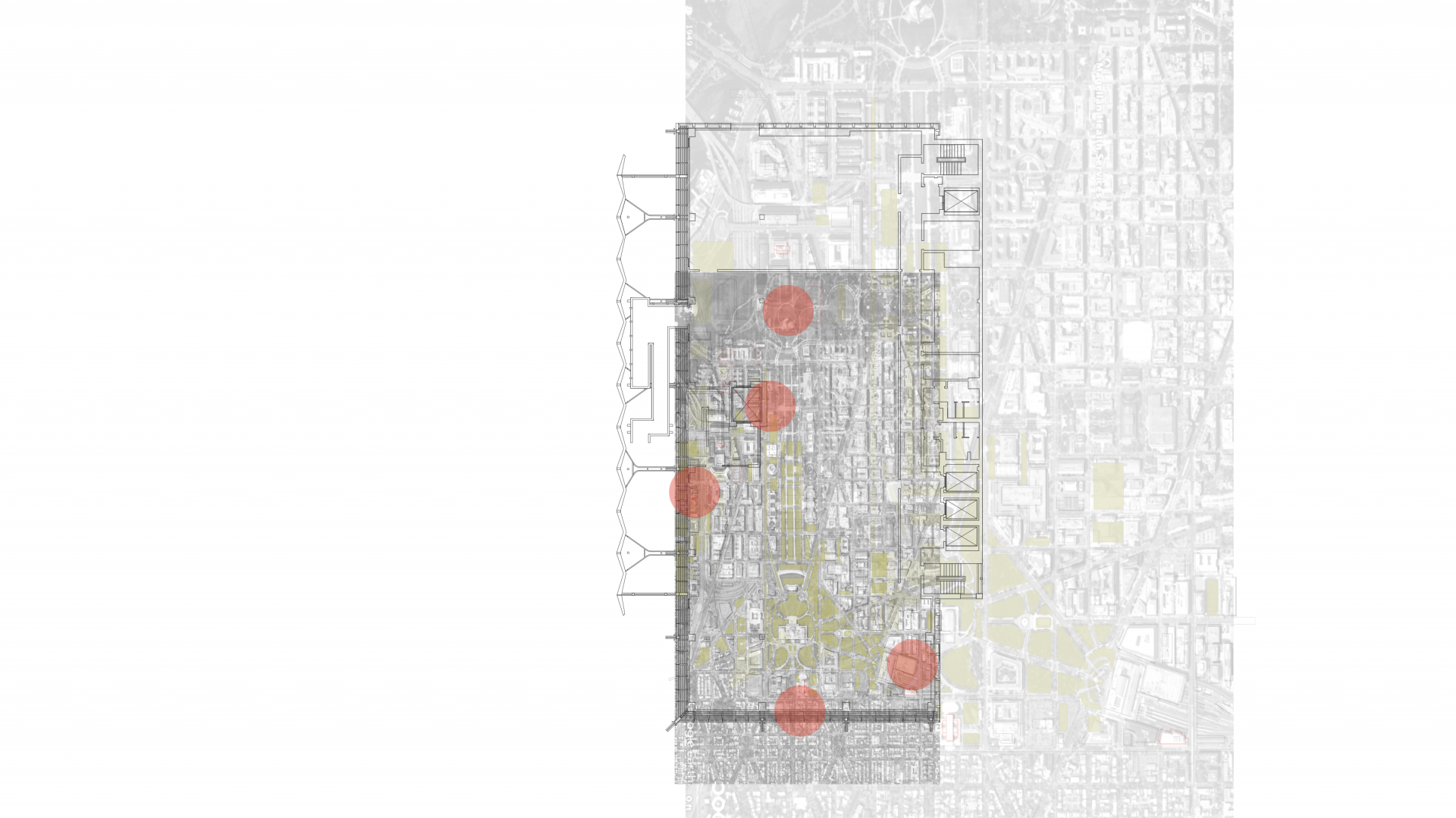
Fan Jia
LIVING UNDER SURVEILLANCE
THESIS ABSTRACT
Our first impression about surveillance will always likely relates to with advanced technology. However, advanced technology is the means that only awakens our consciousness of surveillance but is not the birth of surveillance. It has been embedded in our lives in our lives all the time for generations. Before the age of technology blooming, surveillance was carried out by the human eye, and this mode continues always. My thesis starts from our daily relationships, and analyzes how surveillance happens around us within those relationships and people interactions.
This thesis proposes a surveillance system in a specific city: —Washington D.C., which is a representative place representative of political power. By roaming within the city, visitors will engage in the created surveillance system and connect with exhibition contents. There are five featured building groups outside the museum, from the -- US General Services Administration to St. Dominic Church, Capitol Hill Medical Center, the Supreme Court and one of downtown residential zones— These responding to five different relationships found in our lives. Visitors will be led to the target hosting museum—the International Spy Museum—by answering questions and scanning information codes in front of each building. While exhibition space is separated into five sections responding with the featured building groups—bureaucracy space, ethereal space, health care space, law enforcement space, residential space, in those sections visitors could play conflicting roles to show both positive and negative sides of surveillance— being monitored and monitoring others. By applying interactive installations and abstracting different architecture features, the sense of monitoring and surveillance will be magnified and augmented.
Surveillance system, as a product of social development, is not absolutely good or bad but this exhibition gives visitors an opportunity to think about the role of the surveillance systems in our society critically, in both positive and negative ways from both perspectives—does it protect us? Or does it hurt us? There is no right or wrong answer for this question, but it is important to explore enlighten people the way to use surveillance and the boundary between protection and injury.
Image
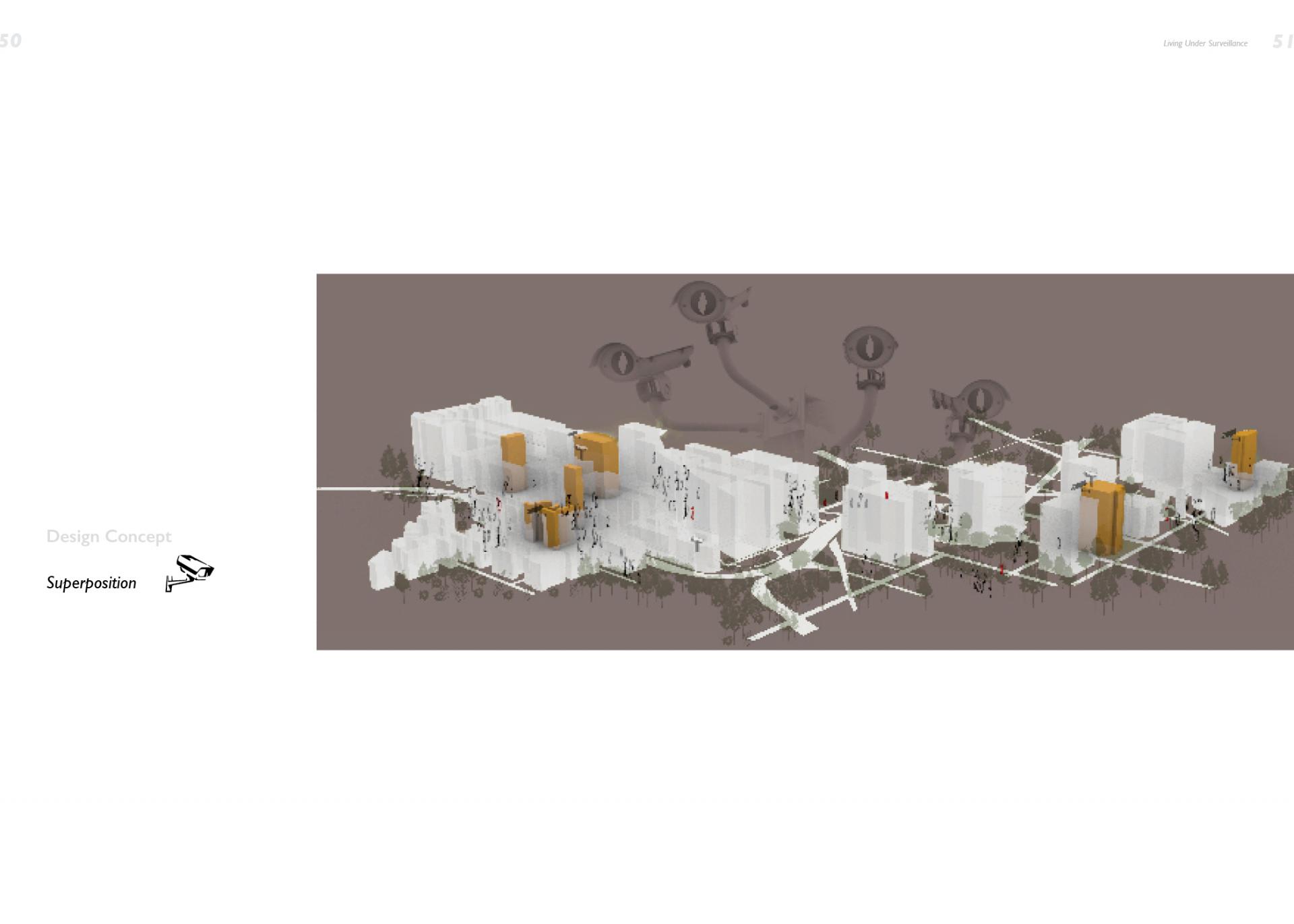
Image
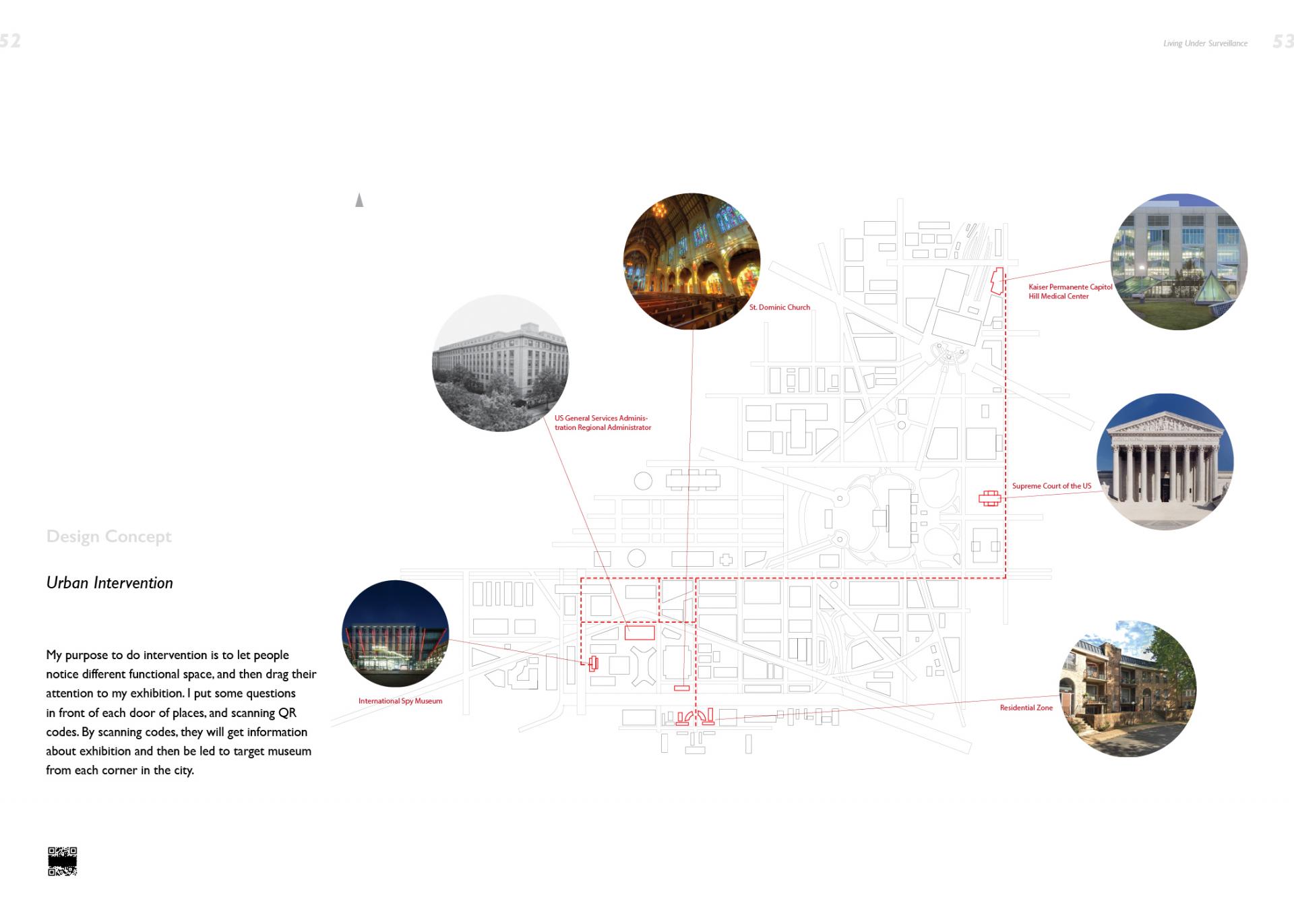
Image
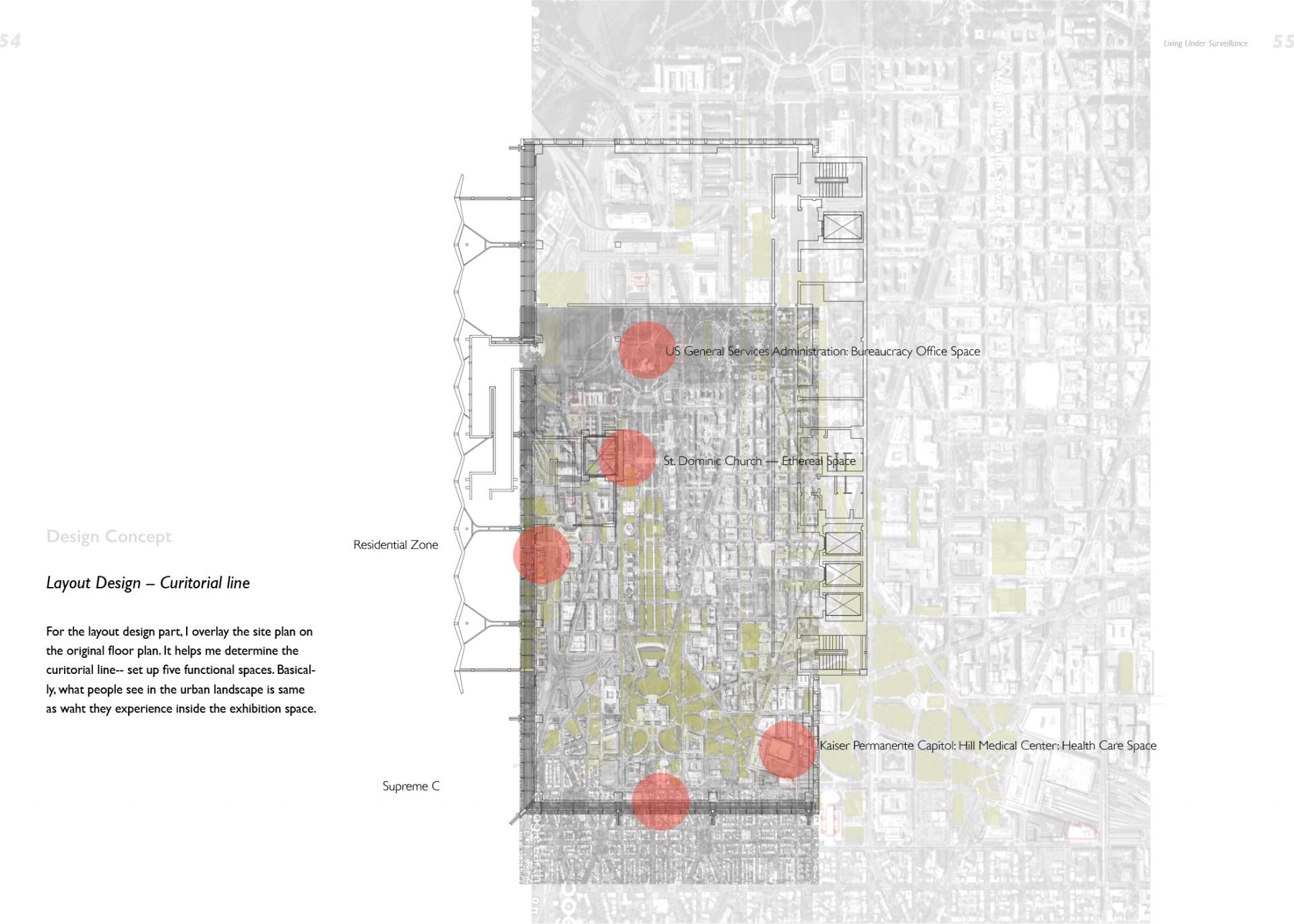
Image
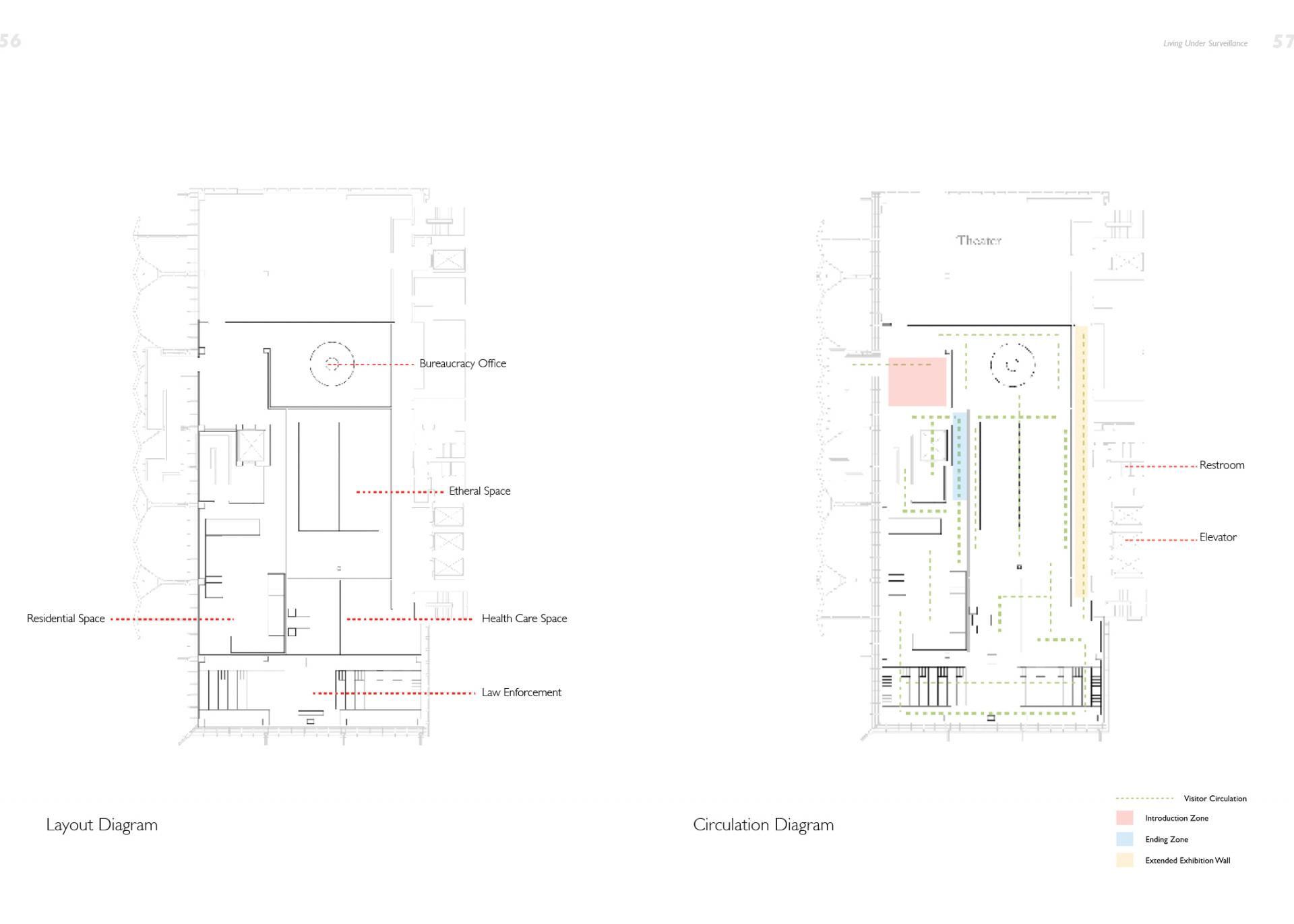
Image
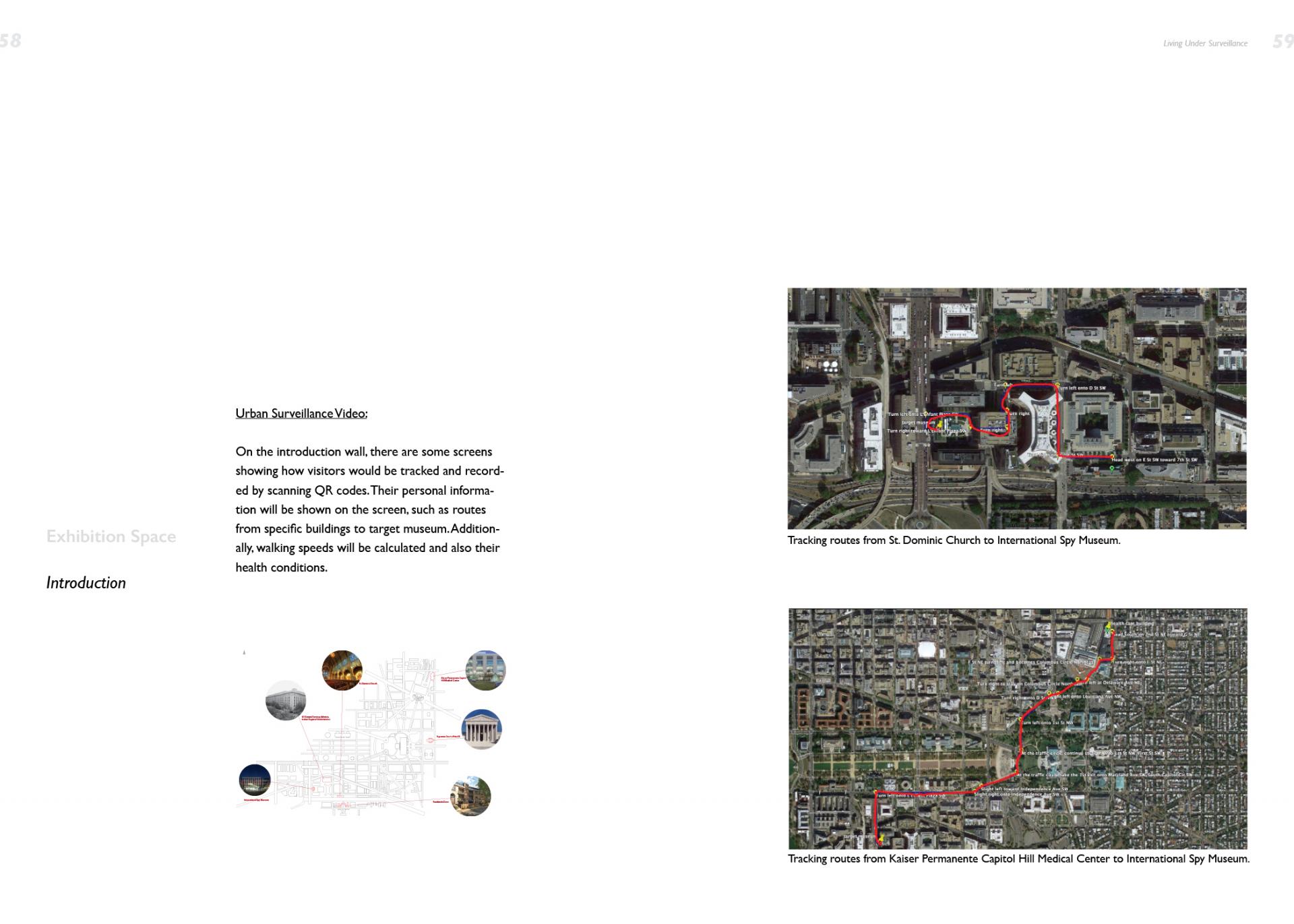
Image
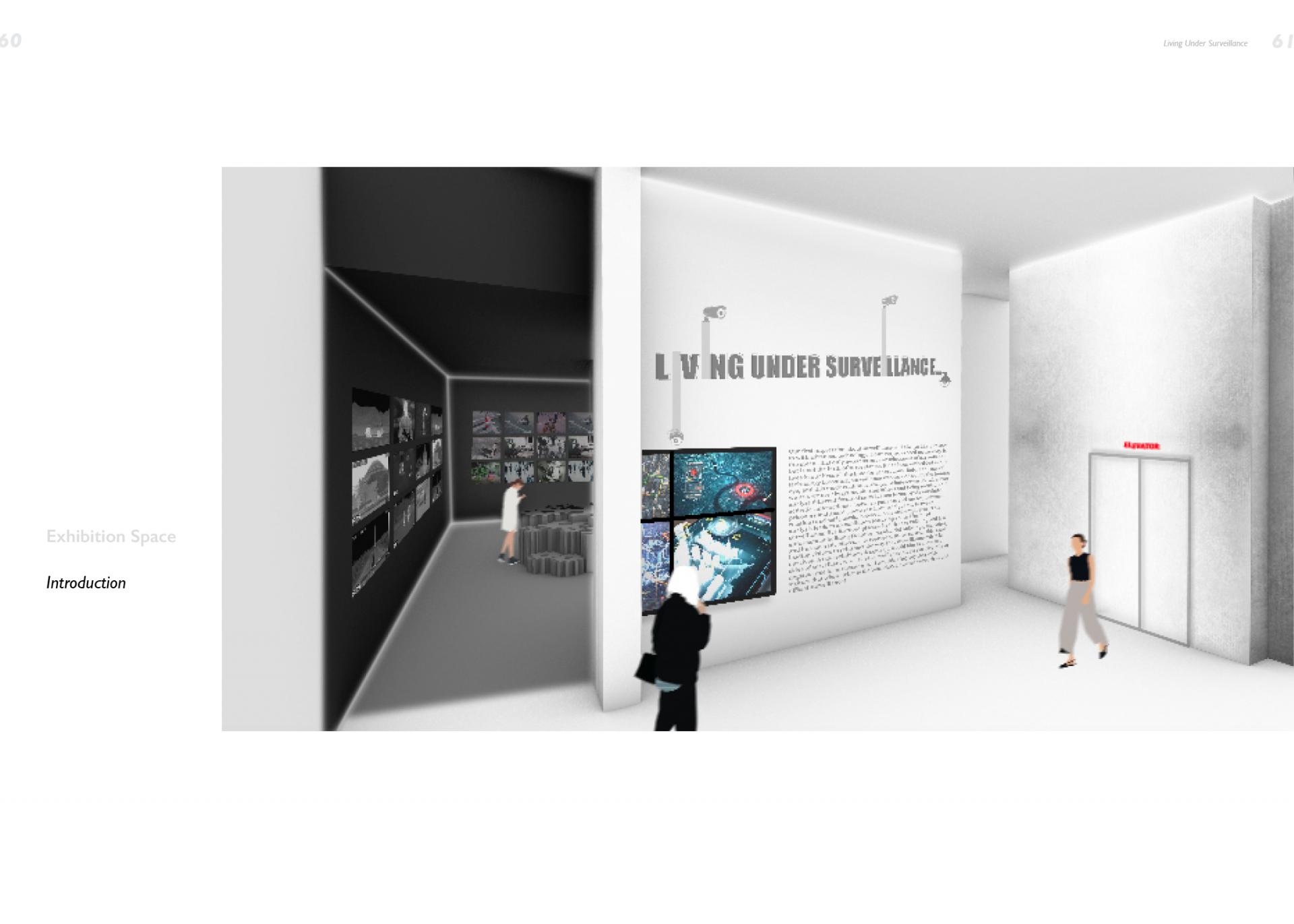
Image
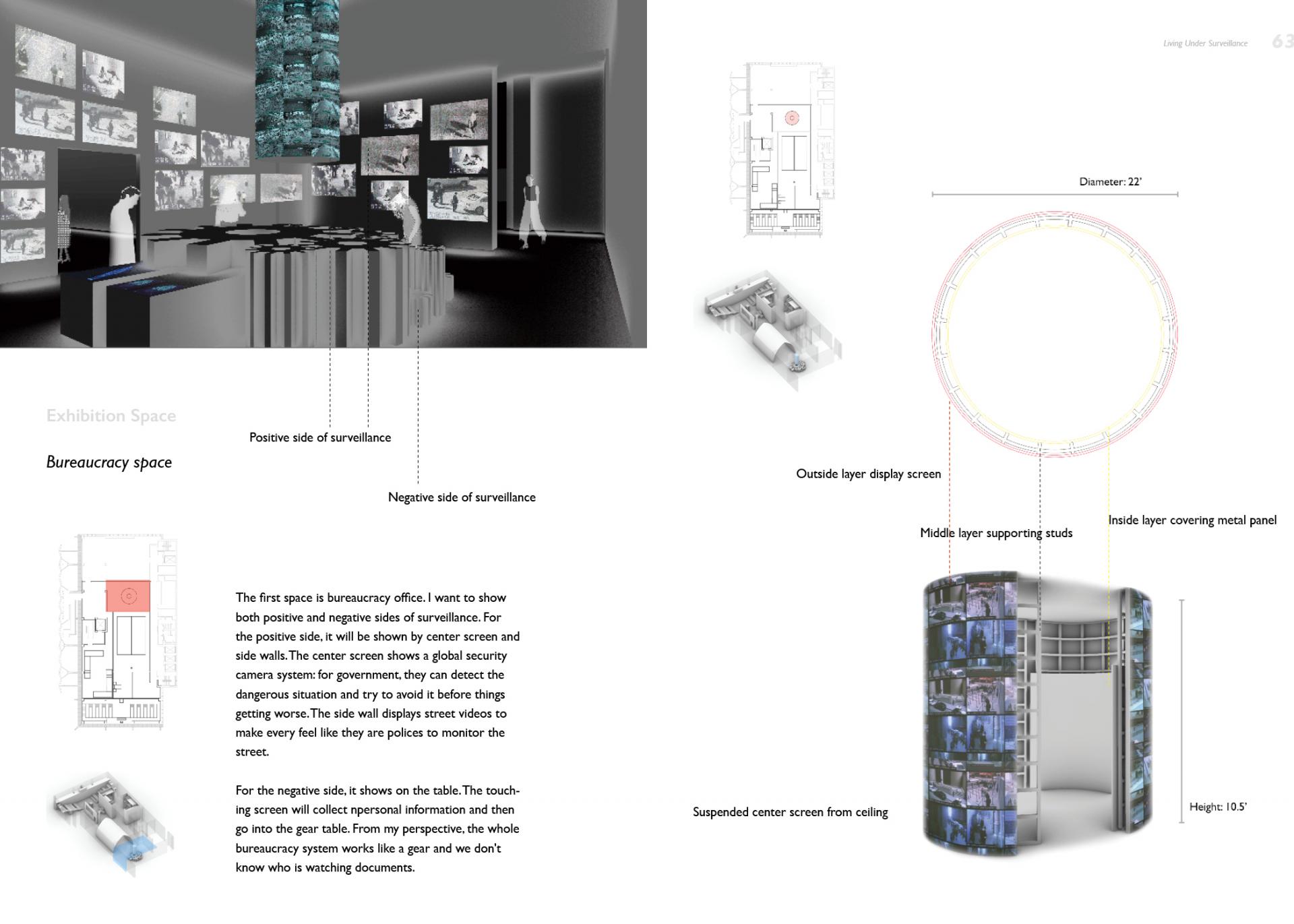
Image
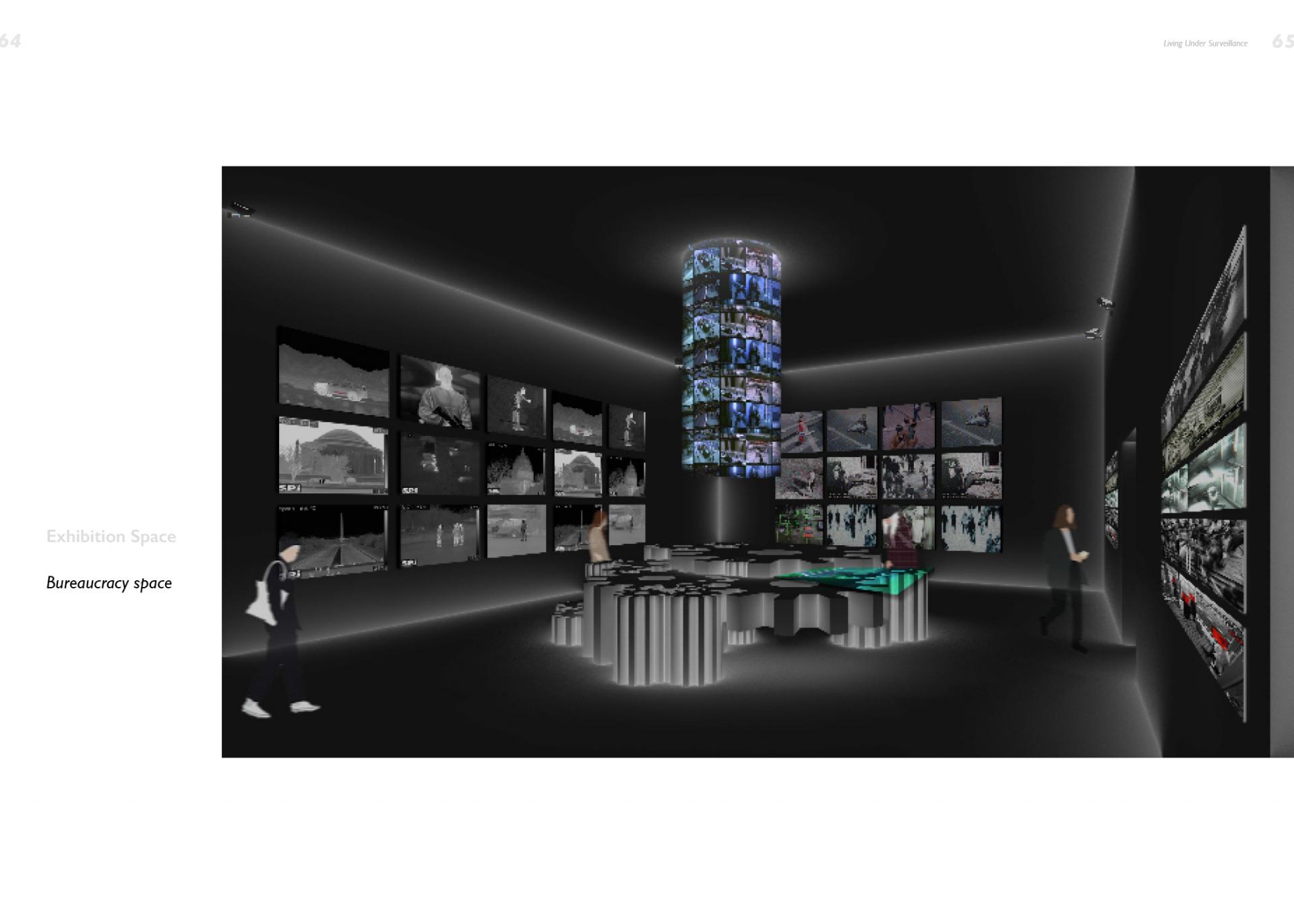
Image
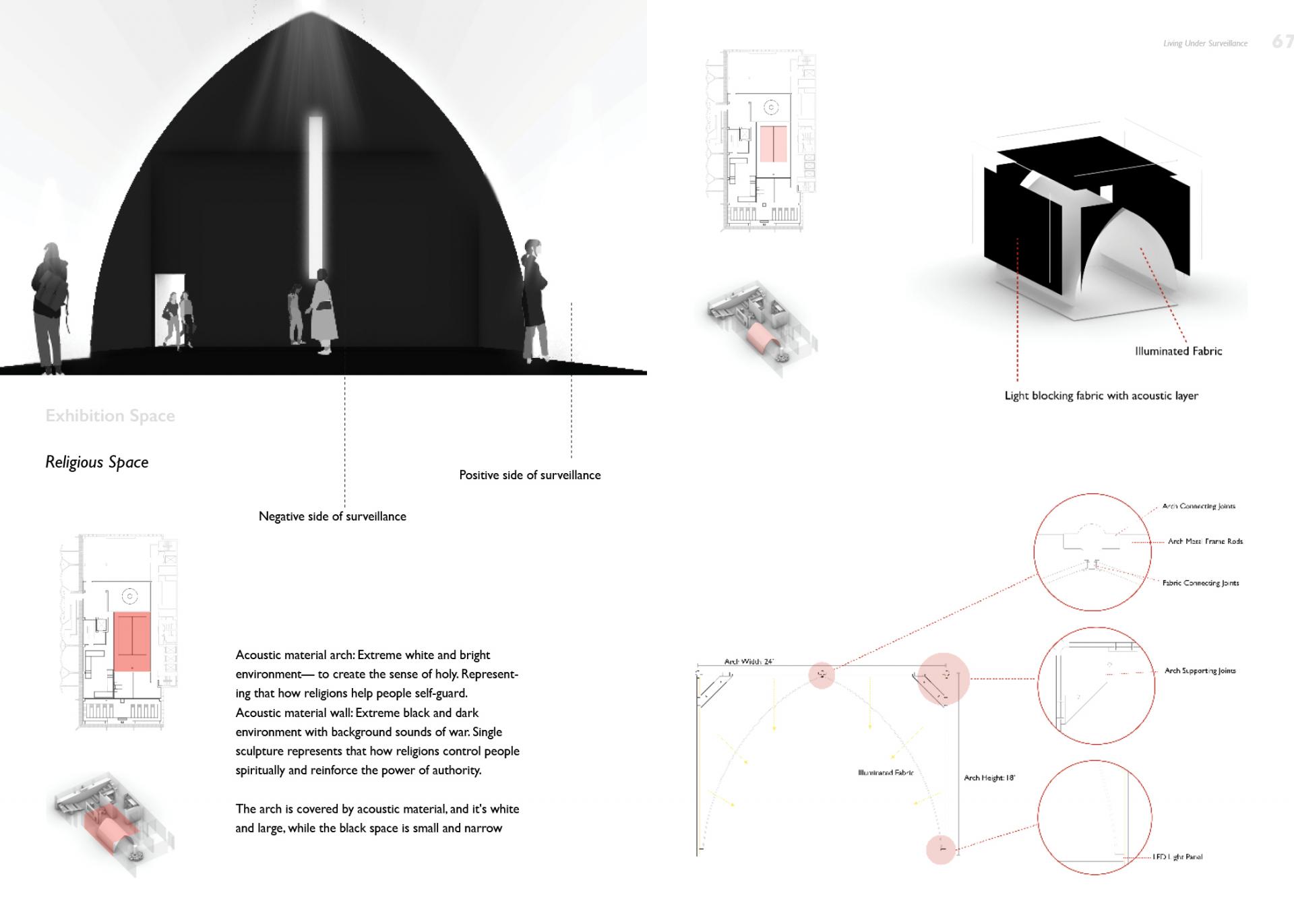
Image
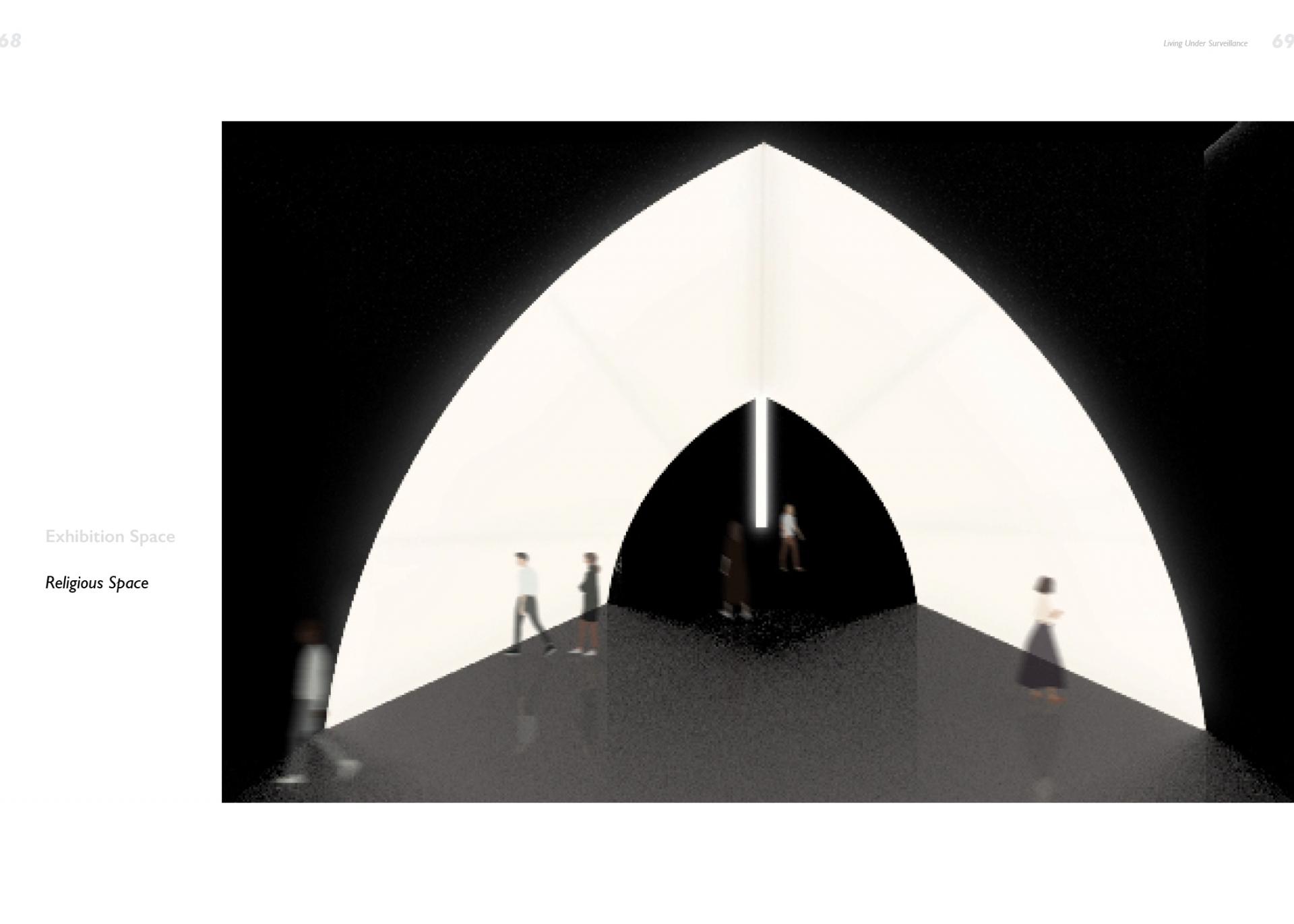
Image
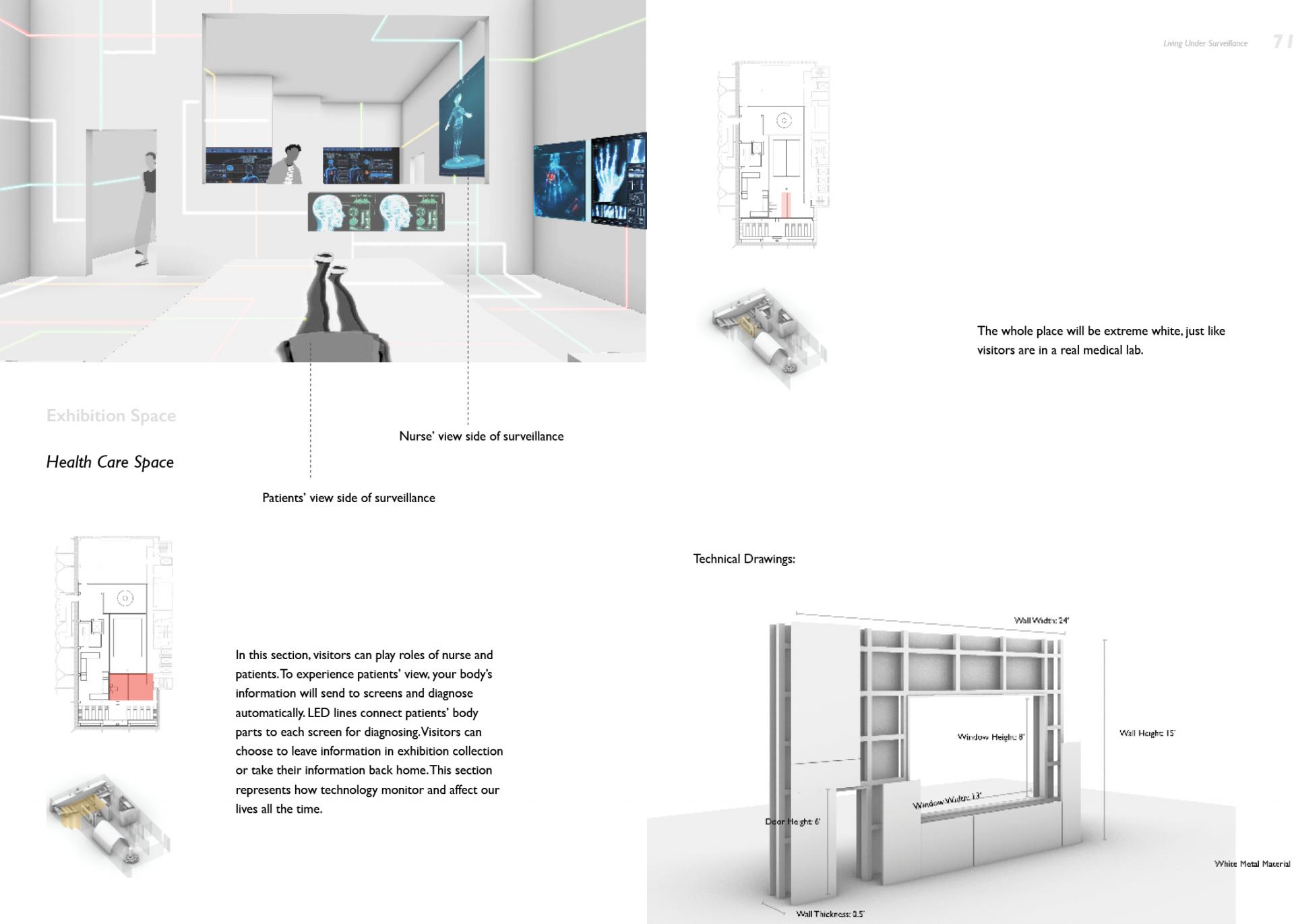
Image
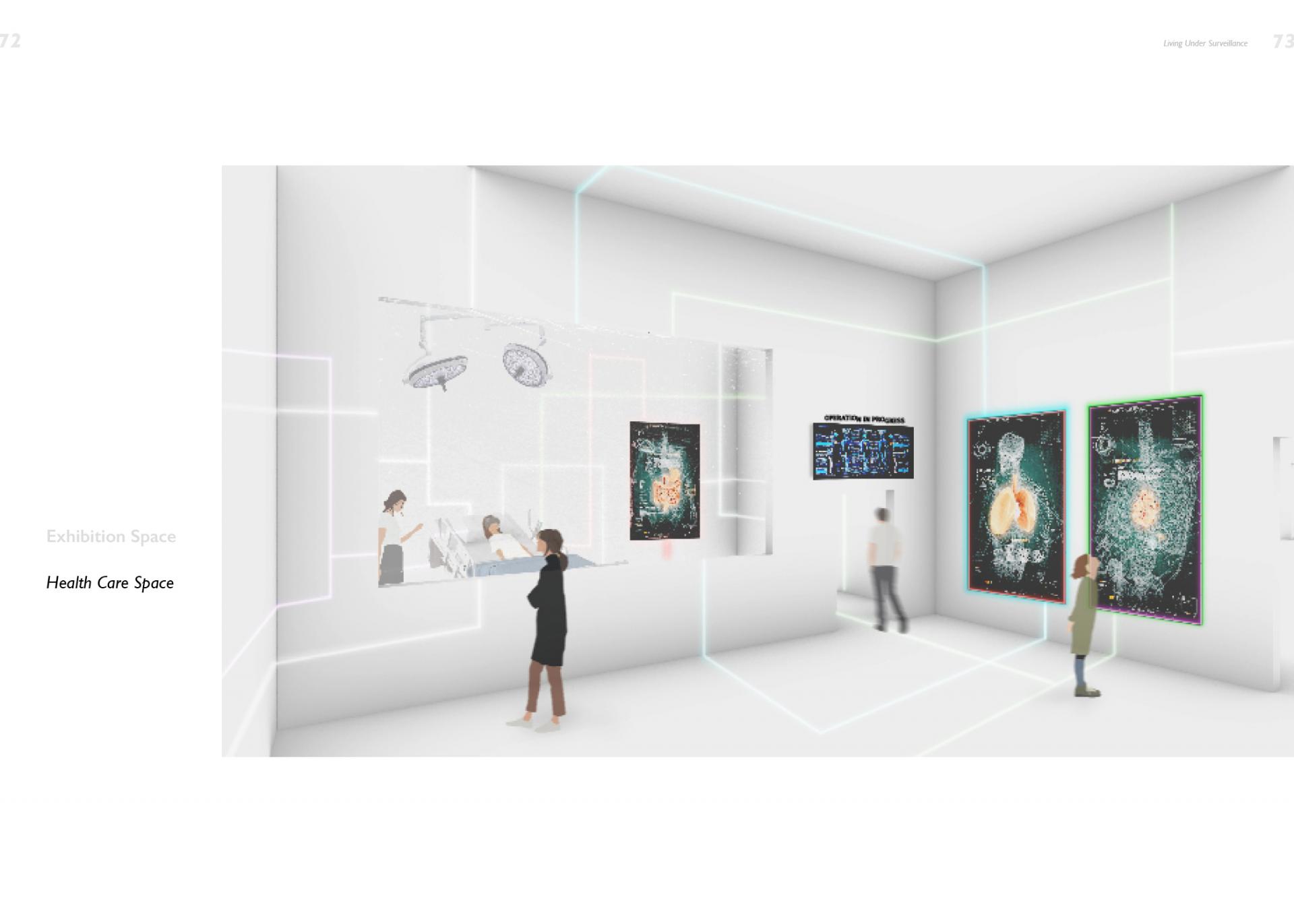
Image
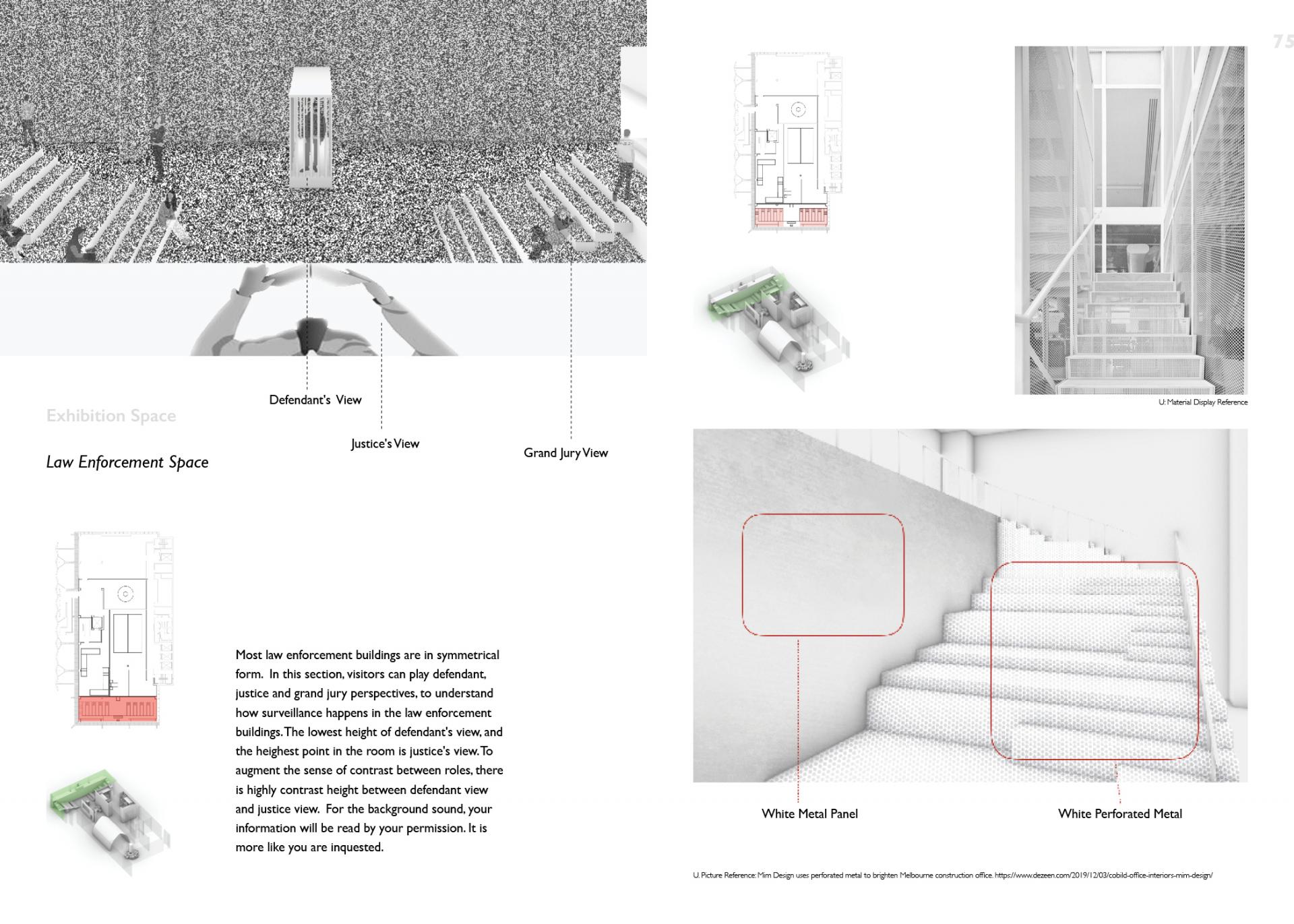
Image
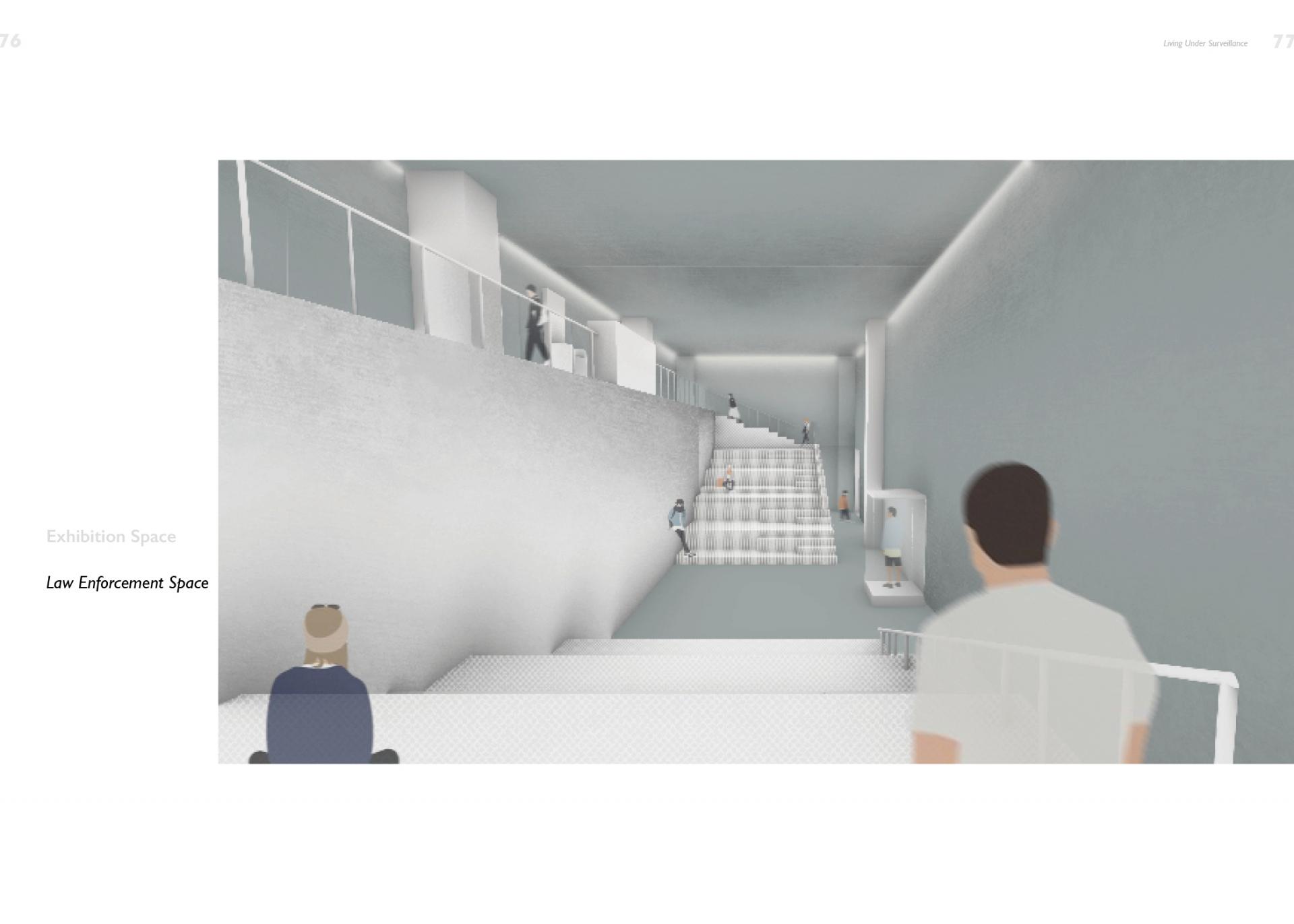
Image
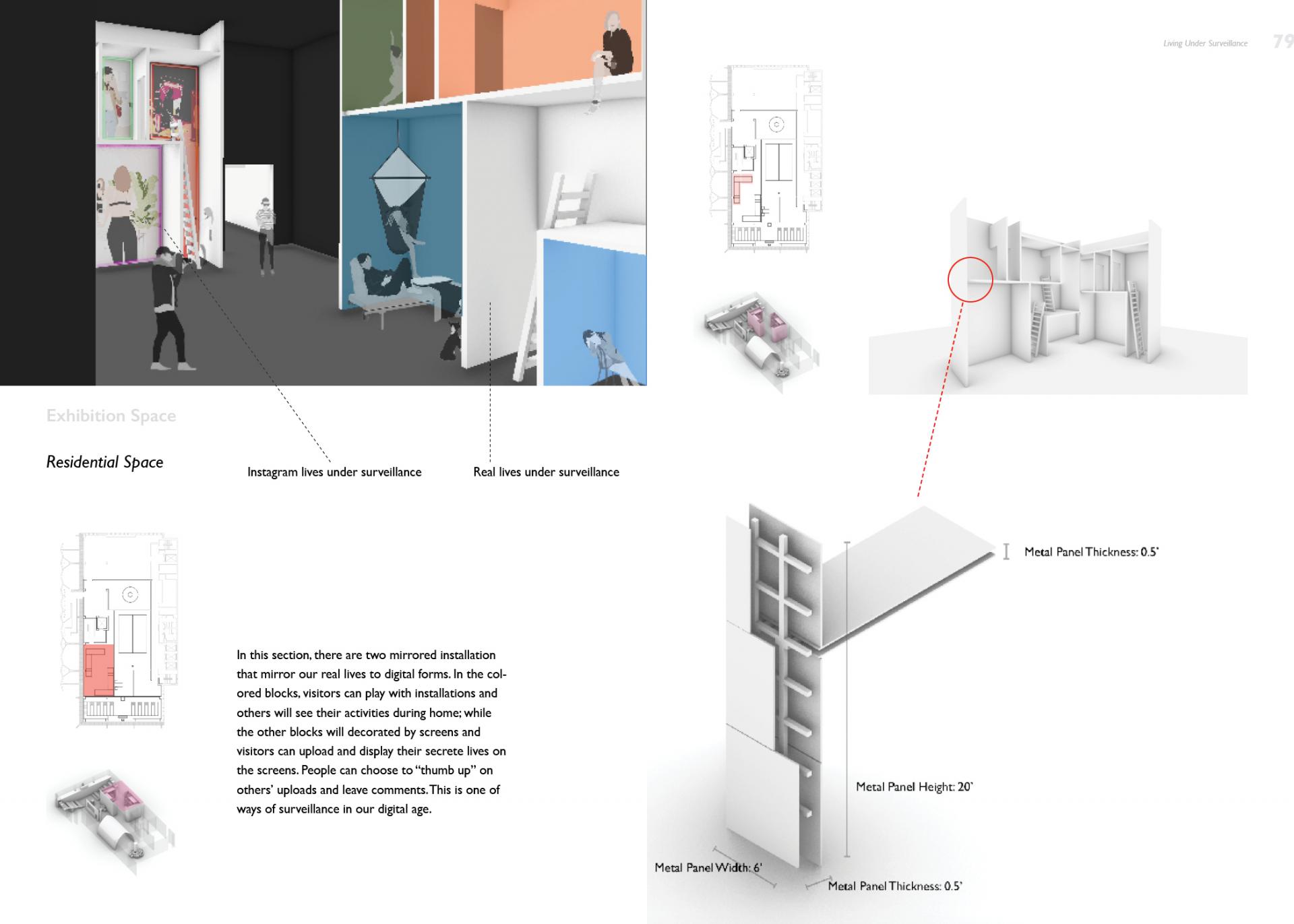
Image
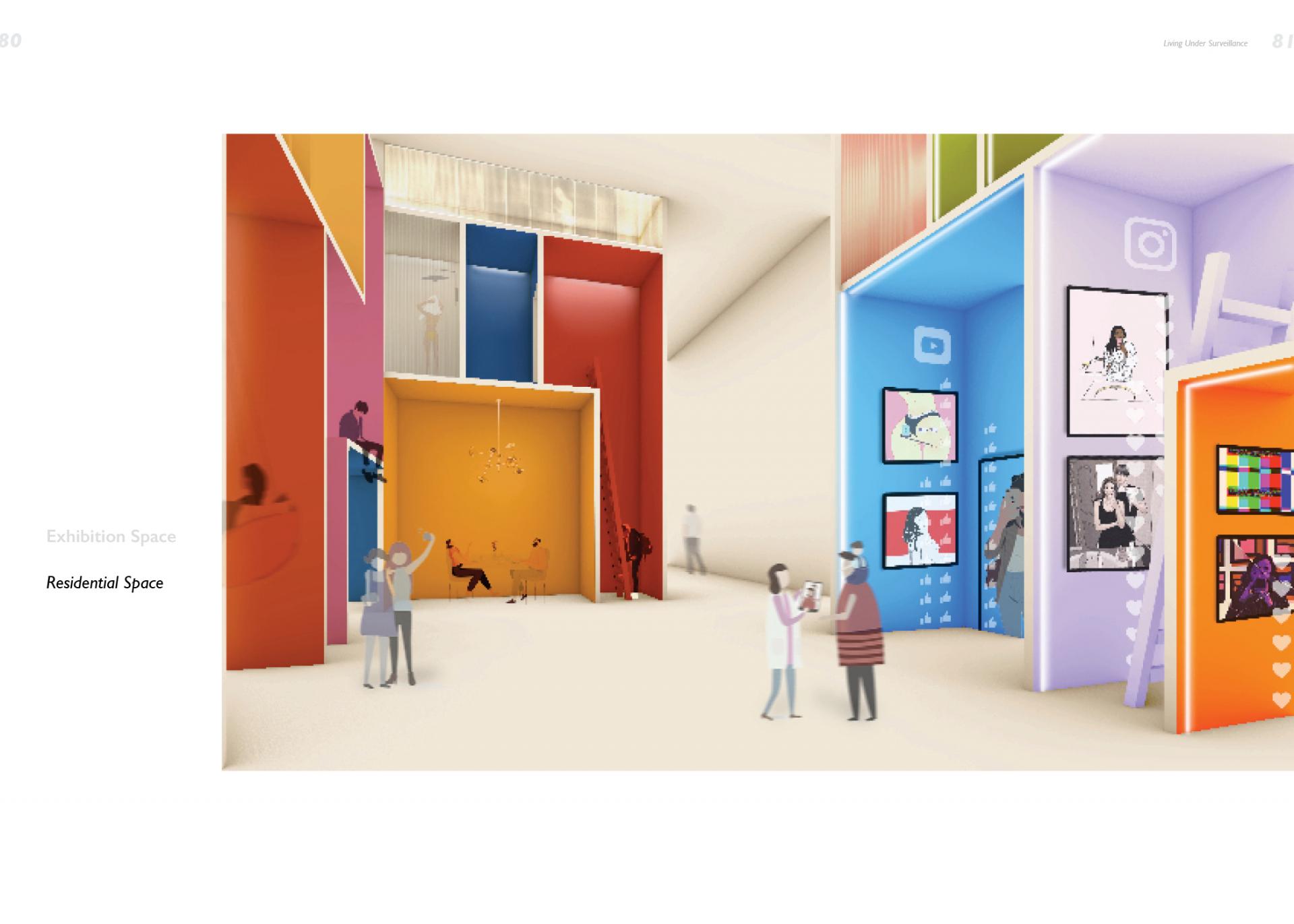
Image
